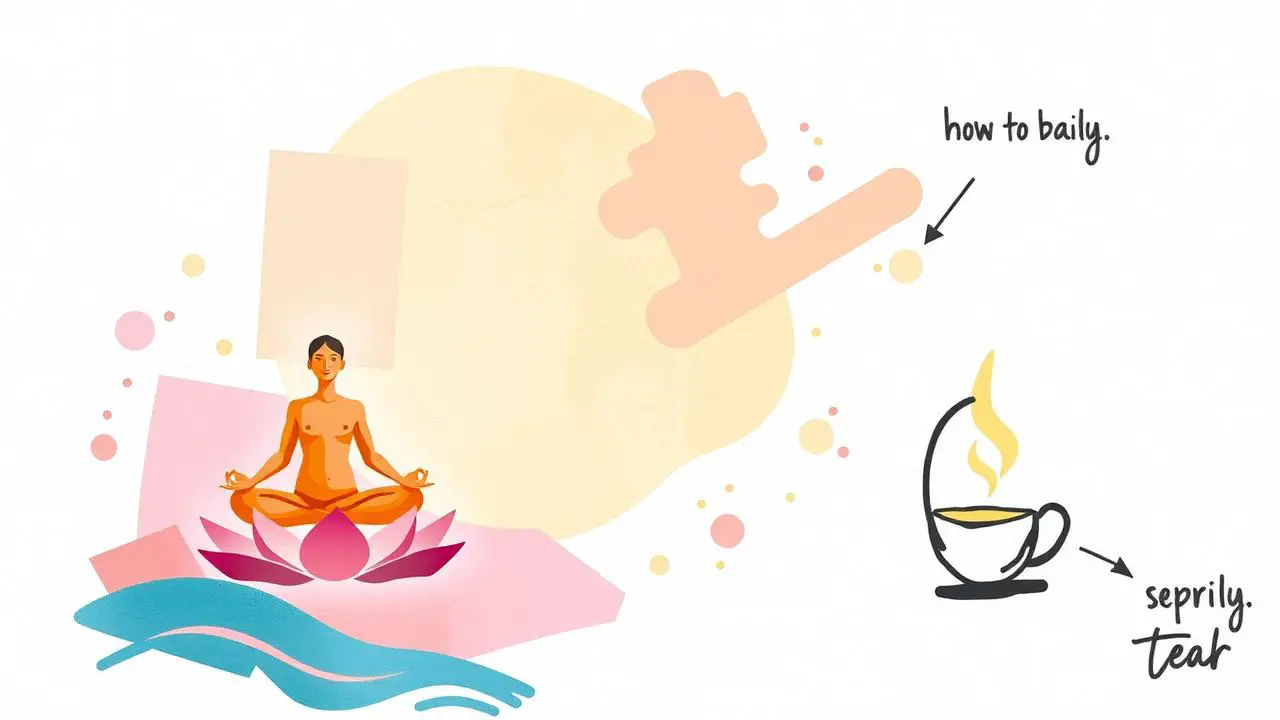Have you ever wondered how often a beginner should meditate? With so many different opinions out there, it can be hard to know what the best approach is. How long, and how often, should someone who is just starting out with meditation practice in order to reap the most benefits?
It depends on how comfortable you feel with the process and how often you have the time. For a beginner, it is suggested to practice meditation for at least 10 minutes each day. As your practice develops, you can gradually increase the amount of time spent in meditation.
It is important to establish a daily routine of meditation. This will help you to stay consistent and reap the most benefits from your practice. 10 minutes of meditation each day will help you form a routine.
Meditation is awesome for reducing stress and upping well-being. But if you’re a beginner, it can be confusing. So here’s a guide for starters!
- Don’t aim for perfection – just make small changes that keep you consistent. Even five minutes a day will do wonders! You’ll feel more relaxed, less overwhelmed and more focused. This can even help with decision-making and productivity.
- Do some research before you start. Find out what type of meditation works best for you. Get to a place where you won’t be interrupted or distracted and then – enjoy! Be patient with yourself as you get more familiar with it.
Benefits of Meditation
Meditating can be awesome for your life! It can lower stress, make you more clear-minded and even help your physical health. Newbies to meditation should know all the health perks and how frequently to do it for the best results.
Improved concentration
Meditate to train your attention and concentration. Regular practice teaches you to stay in the present and not be distracted. Awareness of your thoughts and feelings helps you understand yourself better and handle life’s challenges.
Meditation boosts focus, making you work smarter and longer. It also keeps the brain active and healthy by building connections and coherence.
Experiment with different meditating techniques and practice 15-20 minutes a day to find what works best for you. This will give you more control over your personal development.
Stress relief
Meditation can help reduce stress. Research shows that it lowers cortisol levels. It gives you a chance to ease tension and release negative feelings. Taking time for mindful meditation can make you feel more relaxed, energized and alert.
Mindful meditating includes focusing on breath or saying mantras or positive affirmations. This helps reduce anxiety and brings clarity, purpose and peace. Regular meditation sessions can reduce effects of severe stress, like
- faster heart rate
- quick breathing
- muscle tension
- shallow chest breathing.
Improved sleep
Restful sleep is key for wellbeing. Research shows that meditating can be useful for bettering sleep. Before bed, it can help relax muscles and reduce stress. This can lead to peaceful wakefulness, aiding in sounder sleep.
It may take weeks to notice changes. Fifteen minutes is recommended for meditating, increasing time until you find a routine that works. Before bed, take slow deep breaths and practice mindful attention, such as body scanning, to relieve tension and encourage relaxation. Doing this will help drift off into sleep.
How Often Should a Beginner Meditate?
Meditation is top-notch self-care. It’s great for calming, and lowering stress. For beginners, finding the perfect balance for their routine can be tricky. So, how often should a beginner meditate? Let’s assess the factors that can help you find the answer.
Start with just a few minutes a day
Start with short meditation sessions, just 10 to 15 minutes. This can help make it part of your routine, without feeling overwhelmed.
Set specific times each day for mindfulness.
Plan ahead to avoid distractions. Consider your own lifestyle needs when you meditate – adjust the timing if necessary. Over time, this will become second nature and you will reap the benefits of a higher quality of life!
Increase your time as you become more comfortable
Meditating is totally up to you. As a beginner, start with short 5-10 minute sessions daily. Increase the time slowly as you go. It’s important to form a habit.
Commit to twice a day or every other day. Make mindful moments during daily life; such as in line at the store, brushing your teeth, or walking in nature. This helps anchor new habits to improve life and wellbeing.
Aim for a regular practice
For a beginner, creating a regular meditation practice is key. There are lots of techniques – adults starting out should try 10 mins/day. Incorporating mindful practices, like guided meditations or sitting and breathing, can reduce stress and focus the mind.
Choose a time that fits your schedule and stick with it – consistency is needed to get the most out of it. Don’t have too ambitious goals, or you’ll get frustrated. Set simple achievable goals and be realistic about how much time you have each day. This will help you stay motivated and inspired in your mindfulness journey.
Tips for Beginners
Meditation can be an effective way to relax the mind, decrease stress, and sharpen your thinking skills. Beginners should start with a short time limit and then increase it when they’re ready.
Here are some tips to help you get started on your meditational journey and enjoy its many advantages:
- Set aside a specific time and place to meditate.
- Focus on your breath and be mindful of your thoughts.
- Start with a short time limit and gradually increase it.
- Let go of any expectations and just enjoy the experience.
- Be consistent and don’t give up if you don’t see results right away.
Find a comfortable place to meditate
When you’re a beginner at meditating, get success by finding a private, comfy, and quiet spot. This can be your bedroom, living room, or even outdoors! Pick somewhere with minimal visual distractions or interruptions. Whatever space you use, make sure it’s comfy to sit in for a while, and don’t overdo it. You’ll find meditating gets easier with practice. So, pick the environment that helps you find inner peace and focus.
Start small and build up gradually
If you’re just beginning to learn about coffee, start simple. Try different beans, roasts, and brewing methods to find out what flavors your tongue likes. Start by drinking lighter roasts and coffees that are brewed quickly, like espresso or cold brew.
Once you get an idea of what tastes you enjoy, you can move onto other roasts, grind sizes, and machines. Don’t be tempted to buy expensive machines and top-brand beans before you understand the basics – it’s important to take it one step at a time.
Knowing the basics will give you an appreciation for the unique flavors each type of bean has. You can also try samples from local cafés or specialty stores to widen your horizons and find the perfect cup of Joe!
Have a set time and place for your practice
A beginner can benefit from having a certain time and place each day to meditate. Setting a specific time helps build consistency. Having one spot for meditation helps create a connection between that place and the act of meditating. It will subconsciously remind you to practice when you’re there, and make it easier to clear your mind.
These two elements will provide structure and make it simpler for beginners to start meditating:
- Set a specific time to meditate each day.
- Choose one spot for meditation.
Conclusion
To wrap up, it’s plain to see that the amount of time a beginner dedicates to meditation should depend on a few things, such as their living habits and level of dedication.
- For instance, someone starting out could pencil in 15 minutes per day or an hour every two days. This all depends on how much effort and time the beginner is ready to put in.
- Also, there are many easy techniques like concentrating on breathing or walking that can help novices adjust to the practice.
- Ultimately, regular practice is the key and allows the individual to experience and witness its positive impacts over time.
-Will Meditating Regularly Help a Beginner Increase their Height?
Meditation for height increase may not directly affect a beginner’s physical growth. Height is primarily determined by genetics and nutrition. However, meditation can improve overall well-being and posture, which may contribute to a more confident and taller appearance. Regular exercise and a balanced diet play a more significant role in height increase.
Frequently Asked Questions
Q: How often should a beginner meditate?
A: As a beginner, it is recommended that you meditate at least once a day, preferably in the morning. Start with 10 minutes and work your way up to 20-30 minutes.
Q: What kind of meditation should I do?
A: There are many types of meditation, such as mindfulness meditation, transcendental meditation, walking meditation, and loving-kindness meditation. Try out different styles to find the one that works best for you.
Q: How will I know if I’m meditating correctly?
A: You may feel relaxed and peaceful during and after the meditation. You may also notice your mind becoming quieter and more focused. However, don’t get discouraged if you don’t experience any of these things – meditation is a skill that needs to be developed over time.




